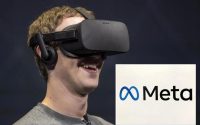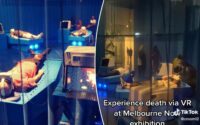Tech firm pitches replacing ‘ugly’ 32-foot NYC 5G cell phone towers with nicer poles that blend in
A techie firm is pitching Mayor Eric Adams a new design to replace a planned network of hulking 5G cell phone antenna towers that has drawn opposition from parts of the city for being too ugly and intrusive.
Comptek has instead proposed smaller, more elegant poles that can be affixed or connected to lampposts and better blend into the landscape than the 32-foot-high antenna towers.
“We are truly excited to propose this solution to New York City, which will address the aesthetic issues raised by various communities and enable every neighborhood to secure the internet access they need,” said Comptek Chief Executive Officer and founder Jim Lockwood.
Lockwood emphasized that the company will consult with community residents, who will have input on the pole designs to match the local architecture and character.
“Once each neighborhood selects the pole design consistent with the existing street light fixtures already arrayed on their streets, we can deploy this solution within six months,” he told The Post.
“We look forward to working with City officials and communities to advance this important goal while maintaining the look and feel of neighborhoods across the City.”
The company, which got its start in Gramercy Park in 2002, has erected smart pole technologies with similar features in Los Angeles, Denver and other major cities in the US.
“From Los Angeles and Portland, to El Paso and through the Midwest to the East Coast, we’ve worked closely with communities to design 5G, WiFi, and multiple technology streetlight poles that match community characteristics and goals,” Lockwood said.
“This extensive track record of successful telecommunication projects around the nation enables us to take our advanced, patented technology and work with community partners to develop designs that consistently meet their approval.”
Opposition to the current planned towers has been fierce in some of the city’s toniest neighborhoods, including in Soho and in Carnegie Hill on the Upper East Side, where there are historic, landmarked streets — such as the fashionable and touristy Park Avenue, Fifth Avenue and Madison Avenue shopping districts.
The 2,000 towering structures that add 5G network access are being installed as part of an agreement between the city and tech consortium CityBridge, which owns LinkNYC and Link5G.
But Rep. Jerrold Nadler, who represents Manhattan’s East and West Side, wrote to Federal Communications Commission Chair Jessica Rosenworcel in April, demanding a review of the towers under National Historic Preservation Act.
While agreeing with the need to expand broadband capacity, the Democrat expressed concern that the 32-foot towers would be “out of context” in historic districts.
He also co-signed a letter sent to the city Landmarks Preservation Commission — along with Manhattan Borough President Mark Levine, state Sen. Liz Krueger, Assembly members Alex Bores and Rebecca Seawright and Council members Keith Powers and Julie Menin — making the same argument.
Critics have slammed liberal Nadler as being more concerned with aesthetics, rather than with addressing more pressing issues such as crime.
Nadler’s office has been briefed on Comptek’s proposal for smaller towers and a rep for the congressman said Adams should consider implementing it.
“It’s a good innovative solution. It could be a win-win for everybody,” said Nadler spokesman Robert Gottheim.
“You could get 5G and preserve the streetscapes of neighborhoods. We are proposing that the city take a look at it,” he said.
Politicians and residents aren’t the only ones squawking about the 5G towers.
Former Knicks basketball star John Starks objected when the city had one of the structures installed smack in front of his Kia car dealership in Queens.
The Adams administration, via its lead agency, the Office of Technology and Innovation, said it will review Comptek’s design.
“From design improvements to new digital services and more robust community programming, the Office of Technology and Innovation is always happy to hear and evaluate new ideas for ways to strengthen our various technology programs as we continue to work to close the digital divide,” an OTI spokesman said.
Any design change to Link5G kiosks would require extensive public review and approval from the Public Design Commission.
Margaux Knee, a rep for City Bridge, which owns and operates LinkNYC, defended the existing 5G towers, which were approved.
“Link5Gs have gone through a rigorous public review process for the past three years, including presentation of alternative designs to the Public Design Commission, and we are in the midst of deploying them across NYC. We remain focused on bringing this important benefit to many more communities where there is an urgent need for free public WiFi and high speed broadband,” Knee said.


